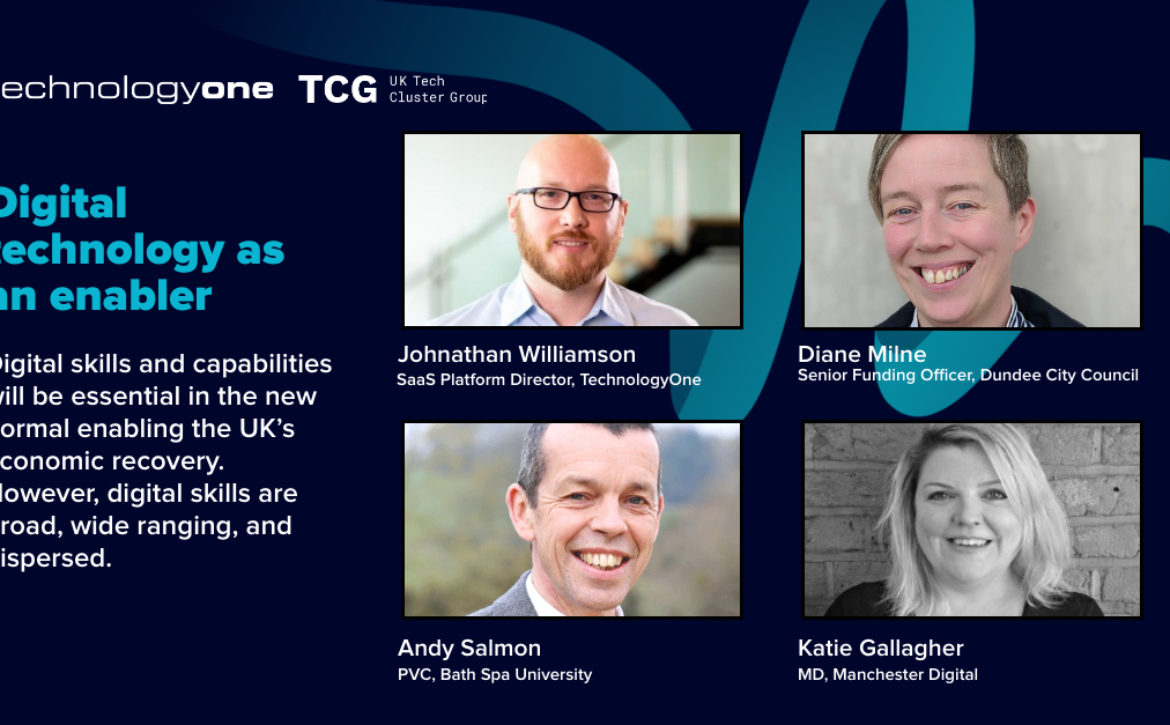Roundtable 3 – Digital Technology as an Enabler
Digital skills and capabilities will be essential in the new normal enabling the UK’s economic recovery. However, digital skills are broad, wide ranging and dispersed. COVID-19 gives an opportunity to reflect and change outmoded structures and ensure the workforce has the chance to have the right skills at the right time through a robust data-driven approach.
Something that we’re touching on is also the impact of having a diverse group with different backgrounds and different experiences. Having a diverse group leads to the most fruitful economy, collaborations and creativity. It brings new ideas to the table. And it’s something that I think we really need to be striving towards as we respond to this crisis.
Georgina Phillipson, Enterprise Support Coordinator, Oxford Brookes University
Watch the roundtable discussion
In the UKTCG’s third roundtable event, a panel of experts explore how digital skills and capabilities will be essential in the new normal enabling the UK’s economic recovery.
Panel speakers
- Ben Shorrock, MD TechSPARK, Director UK Tech Cluster Group
- Katie Gallagher, Managing Director, Manchester Digital, UKTCG Steering Board
- Johnathan Williamson, Director, TechnologyOne
- Andy Salmon, PVC, Bath Spa University
- Diane Milne, Senior Funding Officer, Dundee City Council
- Alastair Irons, Dean of Computing, University of Sunderland
- Ben Atha, CEO, The Developer Academy
- Michelle Gordon, Corporate Manager, Economy & Business, Babergh & Mid Suffolk District Councils
- Mick Westman, Founder at Digital Innovators Ltd & Vice President at the Solihull Chamber of Commerce
- Georgina Phillipson, Enterprise Support Coordinator, Oxford Brookes University
- Rob Passmore, North Devon UNESCO Biosphere Reserve




